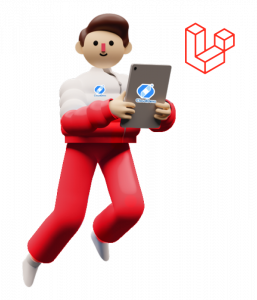How to work with cookies in Laravel?
Working with cookies in Laravel is akin to leaving breadcrumbs for your users—it’s a way to store small pieces of data on the client’s browser, allowing you to personalize their experience and track their interactions with your application. Let’s explore how to work with cookies in Laravel in a user-friendly way:
Setting Cookies: Laravel makes it easy to set cookies using the cookie() helper function or the Cookie facade. You can set a cookie by providing a name and a value, along with optional parameters such as expiration time, path, domain, and secure flag. For example, to set a cookie named user_id with a value of 123, you can use cookie(‘user_id’, ‘123’, $minutes).
Retrieving Cookies: Once a cookie is set, you can retrieve its value using the request() helper function or the Request facade. Laravel automatically decrypts and deserializes cookie values, making them accessible within your application’s request lifecycle. For example, to retrieve the value of the user_id cookie, you can use request()->cookie(‘user_id’).
Deleting Cookies: Laravel allows you to delete cookies by setting their expiration time to a past date. You can use the cookie() helper function or the Cookie facade to set a cookie with an expiration time in the past, effectively deleting it from the client’s browser. For example, to delete the user_id cookie, you can use cookie()->forget(‘user_id’).
Cookie Encryption and Security: Laravel automatically encrypts cookies to prevent tampering and unauthorized access. This ensures that sensitive information stored in cookies remains secure and confidential. Additionally, Laravel provides built-in protection against CSRF (Cross-Site Request Forgery) attacks, mitigating the risk of malicious cookie manipulation.
Cookie Consent and Compliance: When working with cookies, it’s essential to comply with privacy regulations such as GDPR (General Data Protection Regulation) and CCPA (California Consumer Privacy Act). Laravel provides tools and libraries for implementing cookie consent banners, managing user preferences, and ensuring compliance with data protection laws.
Session Cookies: Laravel’s session management features rely on cookies to store session identifiers and maintain user sessions across HTTP requests. Laravel automatically handles session cookies behind the scenes, simplifying session management for developers.
Custom Cookie Options: Laravel allows you to customize cookie options such as expiration time, path, domain, and secure flag to meet your application’s specific requirements. You can configure these options globally in the config/session.php file or dynamically when setting cookies in your application code.
By following these steps, you can effectively work with cookies in Laravel, enhancing user experience, personalizing interactions, and ensuring data security and compliance within your web applications. Laravel’s intuitive cookie management features empower developers to build user-friendly and privacy-conscious applications with ease.





